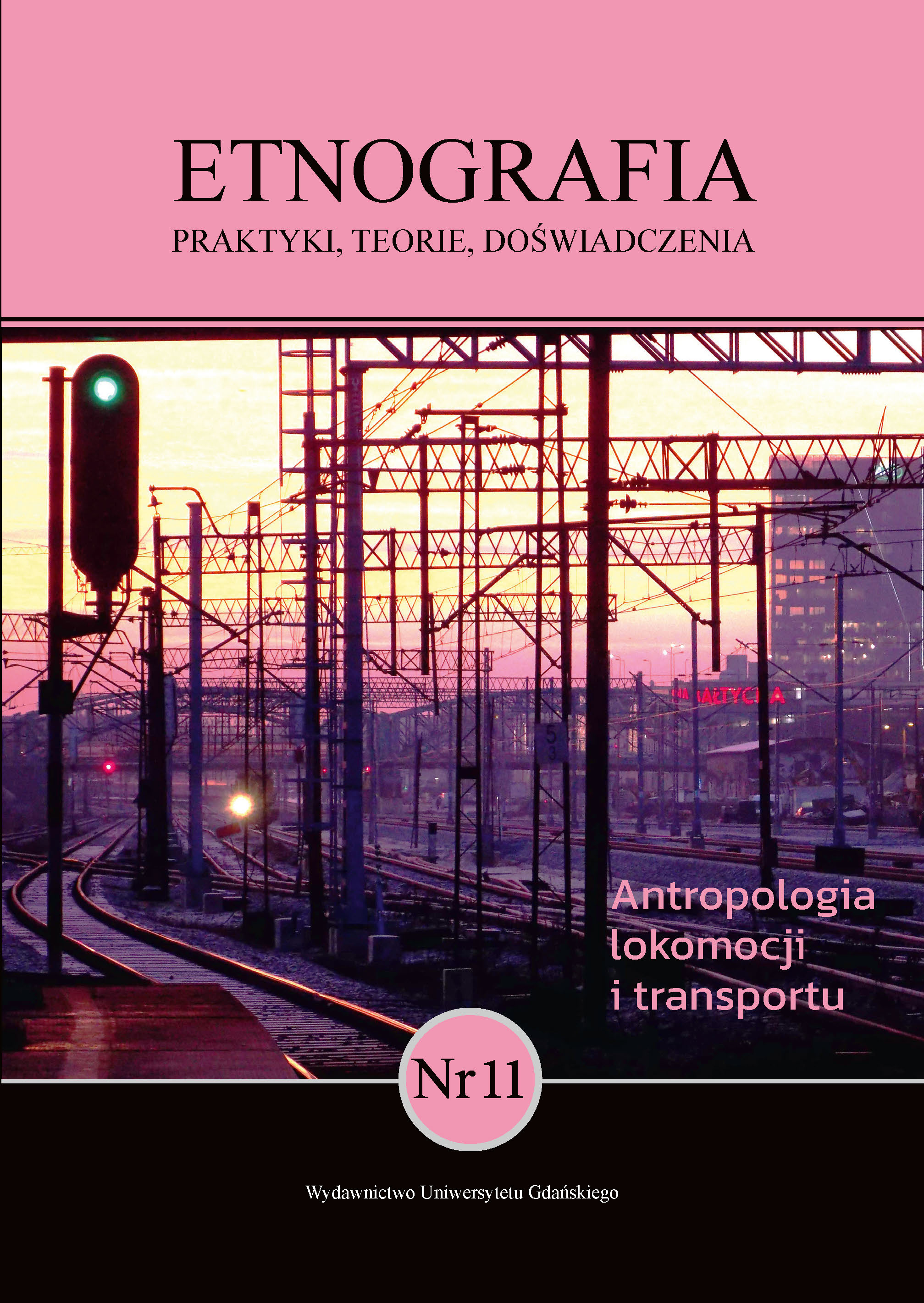Tom 11 Nr 11 (2025): Antropologia lokomocji i transportu

Jedenasty numer czasopisma „Etnografia. Praktyki, Teorie, Doświadczenia” poświęcony jest relacjom między kulturą a techniką w kontekście lokomocji i transportu oraz ich wpływowi na społeczne imaginaria i praktyki kulturowe. Lokomocja i transport ujmowane są tu nie tylko jako rozwiązania techniczne czy infrastrukturalne, lecz jako zjawiska realnie kształtujące wyobrażenia, doświadczenia cielesne oraz formy życia społecznego. Tak określony punkt wyjścia zachęcił autorki i autorów do analizy kulturowych, symbolicznych, afektywnych i cielesnych wymiarów ruchu wspomaganego technicznie, ze szczególnym uwzględnieniem perspektywy etnograficznej. Artykuły ukazują, jak infrastruktura oraz środki lokomocji funkcjonują jako nośniki ideologii i metafor – nowoczesności i tradycji, wolności i przymusu, postępu i ograniczeń – które modelują wyobrażenia przestrzeni, tożsamości i relacji społecznych. Zgromadzone teksty, odwołujące się do antropologicznego mobility turn, ukazują lokomocję i transport jako splot technologii, narracji, praktyk i afektów, analizowany z wykorzystaniem m.in. etnografii, autoetnografii, disability studies, antropologii zmysłów oraz analizy dyskursu.
Słowa klucze: transport, locomotion, mobility studies, technography, ethnography, imagineering, invasive species, critical mobility studies, container, containerization, logistics, mobility, non-humans, transport, Wasmannia auropunctata, more-than-human, container ship, liminality, maritime infrastructure, seafarers’ daily life, shipboard space, cultural landscape, change, Polish countryside, contemporary times, Affectivity, Embodied cognition, Urban mobility, Multisensory ethnography, Sensory experience of the city, 15-Minute City, cargo bikes, practice theory, sustainable mobility, dispositive, patchy Anthropocene, automobility, blindness, disability, guide dog, mobility, white cane, visual impairment, hitchhiking, travelling, PRL (People’s Republic of Poland), mobility practices, cultural changes, Thor Heyerdahl, Historiography of science, Reception history, Polynesia, Polynesian problem, Rapa Nui (Easter Island),railway culture, railway enthusiasts (denshaotaku), Japan Railways, otaku, The National Museum of Denmark, Museum Worminanum, Kunstkammer, Collectors and collections from the Americas,imagineering, mobility studies, anthropology of transport, technology and society, socio-cultural imaginaries, conference, anthropology of plants, more-then-human anthropology

 Uniwersyteckie Czasopisma Naukowe
Uniwersyteckie Czasopisma Naukowe



